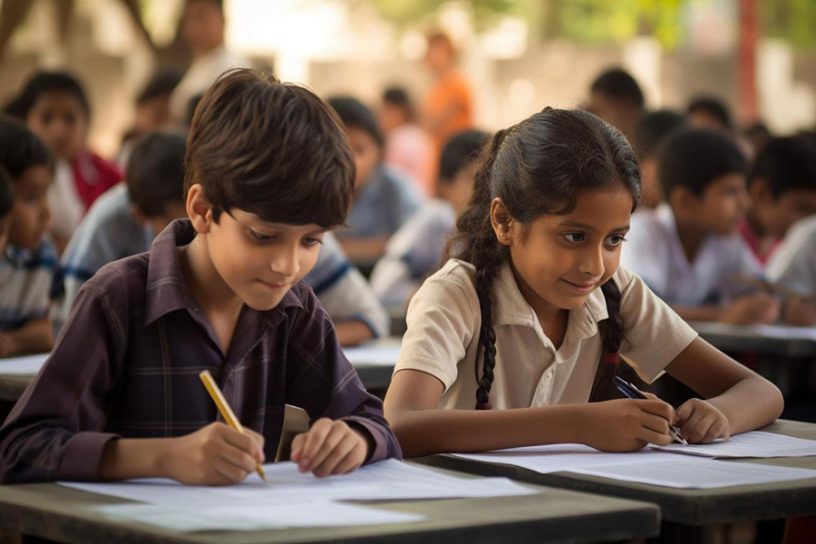
The findings revealed that higher levels of Teacher Innovative Behaviour predicted higher levels of Intrinsic Goal Orientation but were unrelated to Academic Self-efficacy after controlling for student demographics and prior outcomes.
Authors
Deepak Maun, Associate Professor, International Institute for Higher Education Research & Capacity Building, O.P. Jindal Global University, Sonipat, Haryana, India.
Vijaya Sherry Chand, Indian Institute of Management Ahmedabad, Gujarat, India.
Kathan Dushyant Shukla, Indian Institute of Management Ahmedabad, Gujarat, India.
Summary
Non-cognitive outcomes like Academic Self-efficacy (ASE) and Intrinsic Goal Orientation (IGO) have a bearing on students’ academic and life outcomes. Yet, the way teacher practices influence these outcomes has remained underexplored.
We examined the influence of Teacher Innovative Behaviour (TIB) on students’ IGO and ASE within a span of one academic year (2015–16) in Indian government primary schools.
Using structural equation modelling, we studied change in IGO and ASE among school students (N = 6421, grades 6–8) taught by 346 teachers with varying levels of TIB. The findings revealed that higher levels of TIB predicted higher levels of IGO but were unrelated to ASE after controlling for student demographics and prior outcomes.
The independent variables collectively explained 20% and 15% of the variation in IGO and ASE. The implications of this study for teacher educators, education administrators, and policymakers are discussed.
Published in: Educational Psychology
To read the full article, please click here.


